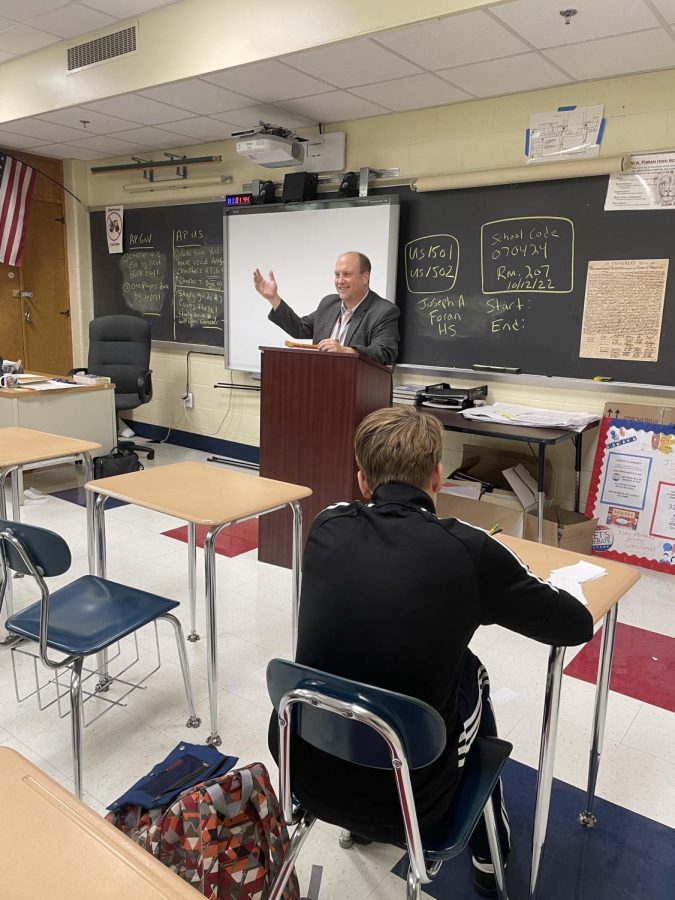AP Survival Guide: Tips and Tricks for First-Time Scholars
At The Podium: Mr. Cesare gives a lesson, October 17, 2022.
The first two months of school have already passed, and many students have been adjusting to Advanced Placement classes, also known as AP classes. AP classes test high schoolers’ performance in a college-like atmosphere.
AP classes tend to be challenging due to their accelerated nature and potentially heavy workload. Even for honors students, such as sophomore Isabella Abreu, homework can pile up if students don’t adapt to the rigor of the course.
“When it comes to units and topics, we move quicker, which ultimately leads to more work in the long run,” Abreu states.
Completing assignments on a tighter schedule can overwhelm students new to AP, but veteran AP students can attest to the discovery and development of study strategies throughout a course.
Senior Joey Cichowski emphasizes the importance of time management to keeping up in a fast-paced environment.
Cichowski explains, “Being able to sit down and dedicate time to working without distractions is what best helps me stay ahead in my classes.” In signing up for courses at a collegiate level, students are expected to devote additional time after school to learning the subject matter.
CollegeBoard provides a plethora of digital resources to enhance education after class is over. According to CollegeBoard’s blog, signing in to AP Classroom allows students to practice multiple choice or free-response questions and watch AP Daily Videos, which “align to every topic in every unit.”
Taking advantage of in-school resources is equally important as self-study outside of class. As in any course, asking questions is crucial to a student’s knowledge and understanding of a topic. Cichowski adds that especially at the AP level, making an effort to be engaged truly alleviates stress surrounding the class.
History department head Mr. Austin Cesare teaches AP U.S. Government and Politics, which many sophomores take as their first AP class. In addition to AP Gov, he also teaches AP U.S History. He has also scored official AP Exams, which taught him exactly what CollegeBoard seeks in student answers. In his past classes, an average 80% of his students got a three or higher on the exam.
“Take notes, listen to the teacher about tips to be successful, and utilize the many resources available online and in prep books to become well versed on the expectations of the class and exam,” Cesare advises.
Knowledge gained both from class and self-study is tested every May, when students have the opportunity to earn college credit through passing AP Exams. These cumulative assessments are scored on a scale from one to five, with scores of three, four, or five eligible for college credit.
Your donation will support the student journalists of Foran High School. Your contribution will allow us to purchase equipment and cover our annual website hosting costs.

Hi! I’m Olivia Salai and I’m a junior. Outside of journalism, I’m choir president and my class’s vice president as well as an active member of...







